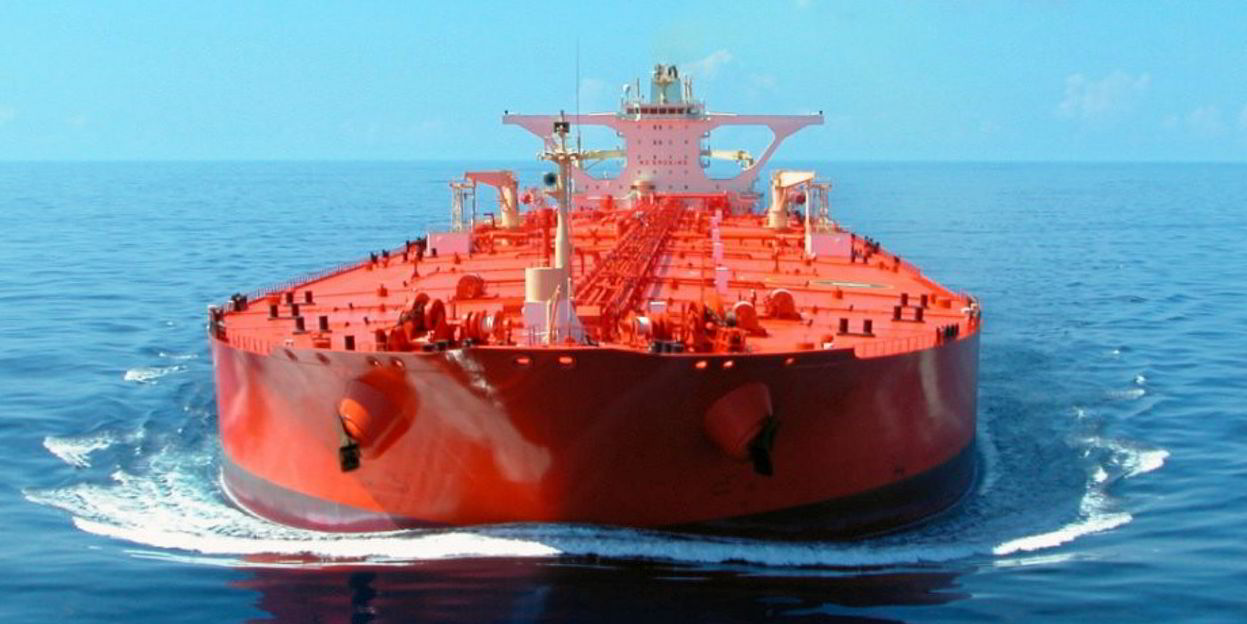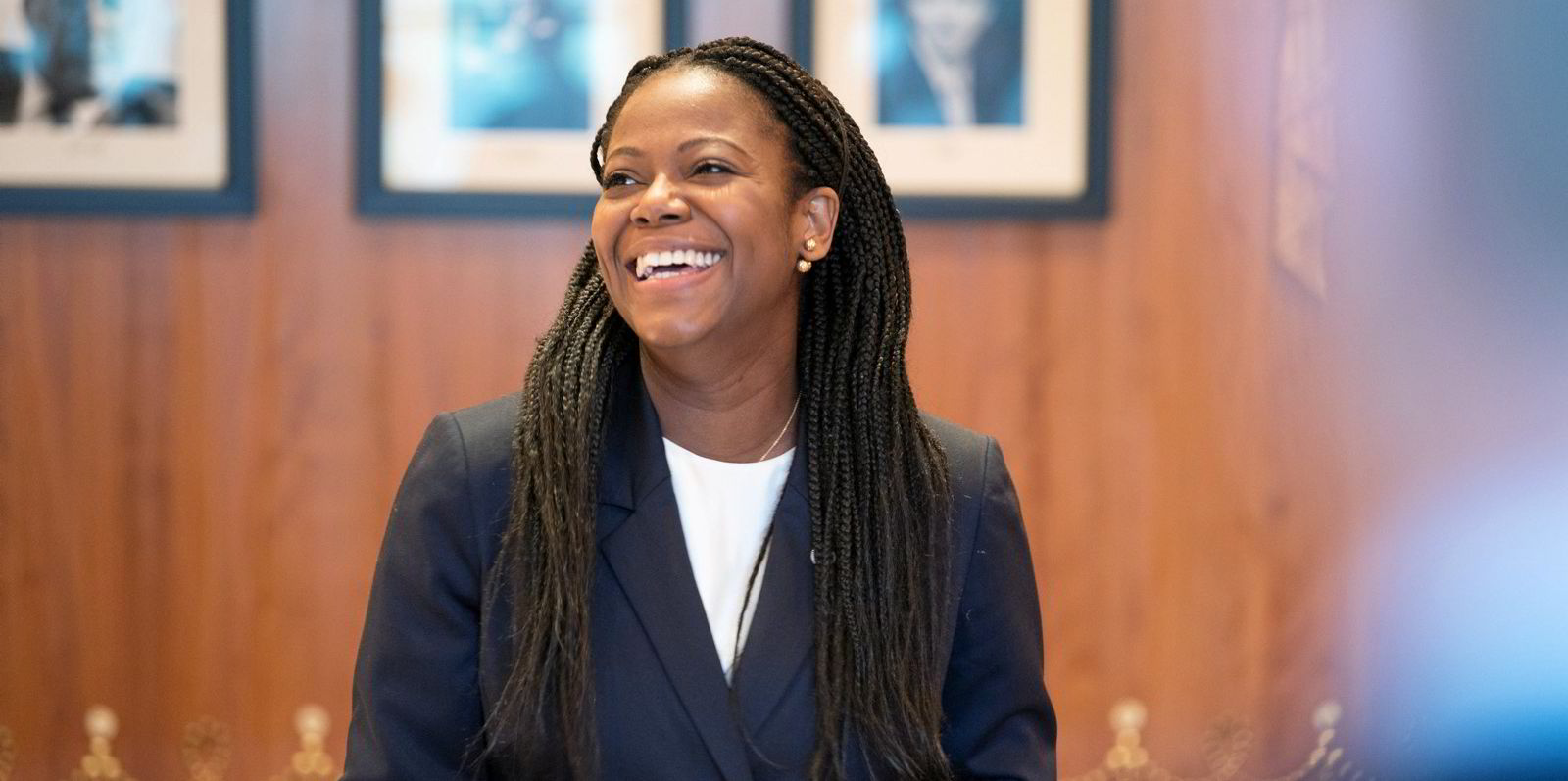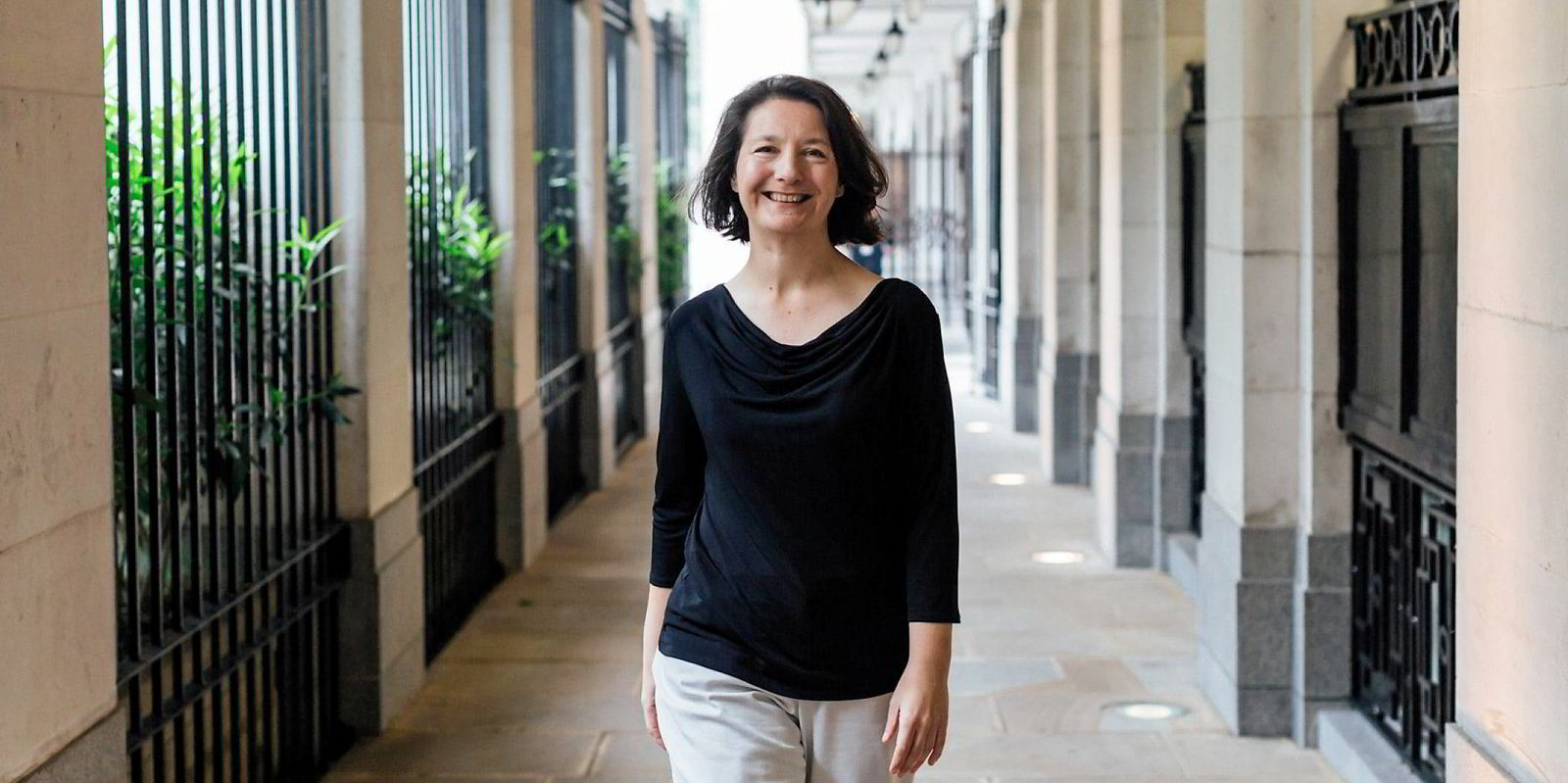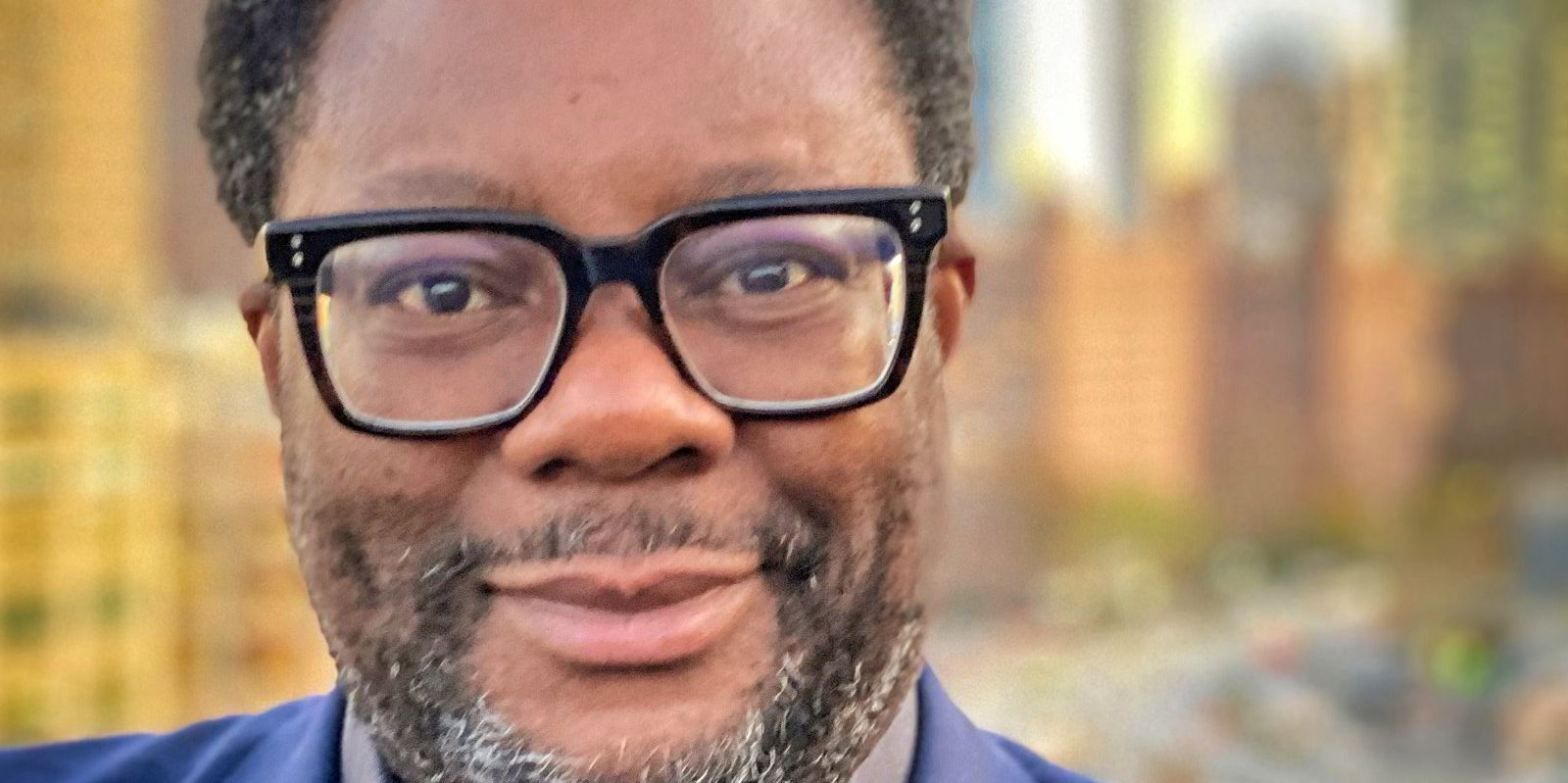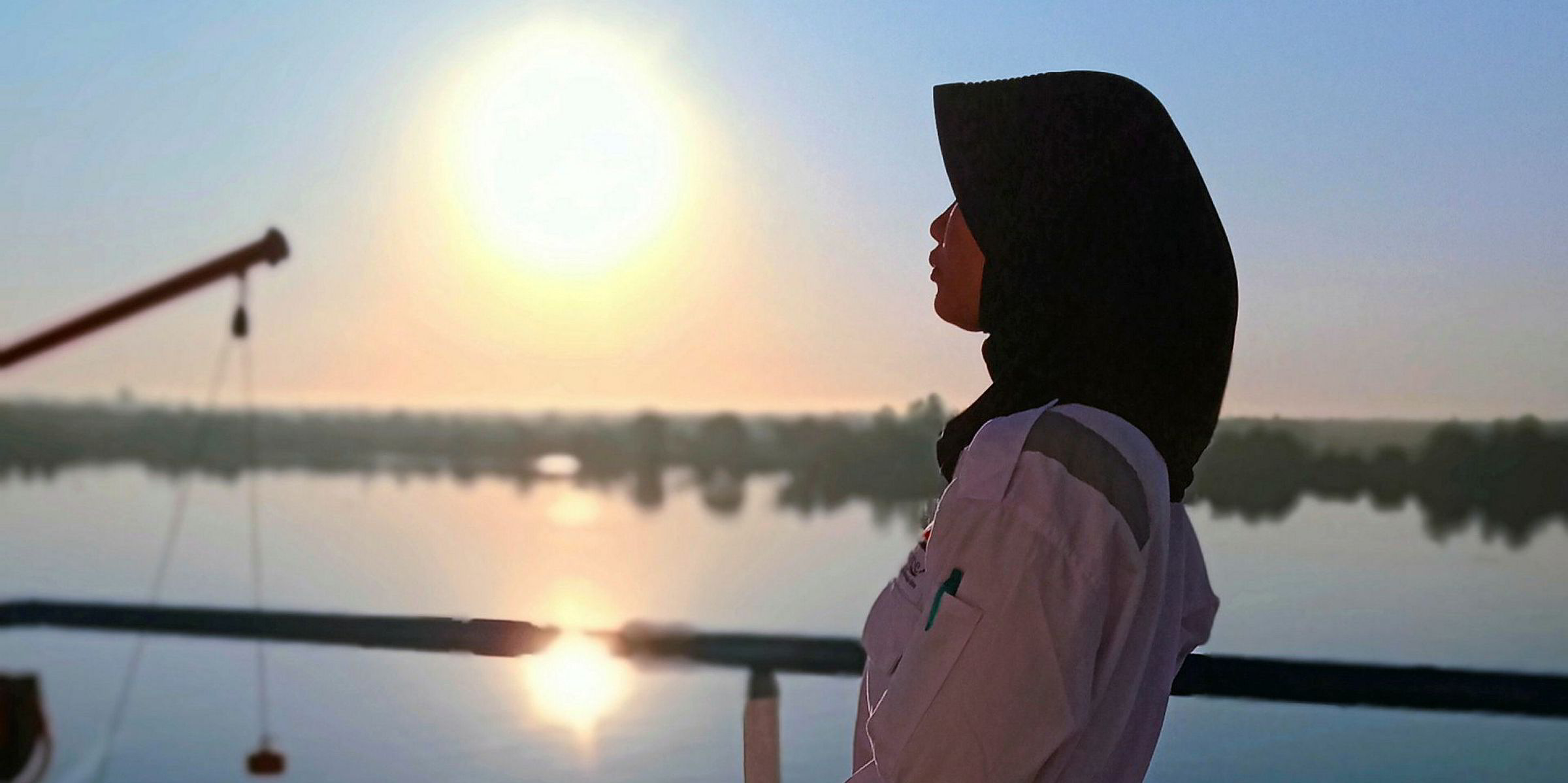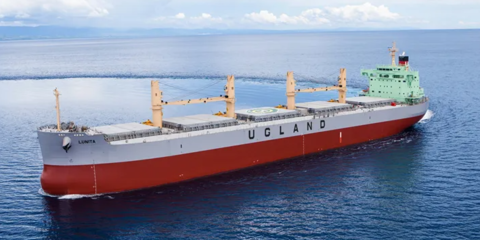Someone always has to go first — that is how things change in the world.
It is very possible that in her job as chartering manager at AET Tankers, Temi Binitie is shipping’s first female black chartering manager, which is a fact that is not lost on her.
"I am a first in the tanker chartering industry. I have an important role to play at being the first so I can pave the way for the next generation. I must be twice as good. I am twice as confident," she wrote in a LinkedIn post late last year.
But what is the pressure she feels to be twice as good?
"Because I don't fit the mould, one has to just keep making sure that you're exceeding everybody else's expectations of you," she told TradeWinds.
"It doesn't mean that their expectations of you are what you expect for yourself, which is why there's a dichotomy in that.
"I know I have to be twice as good, but I am twice as confident. My confidence level in what I do cannot be taken away from me, I will not let anybody do that."
But it would seem, from what Binitie says, that is what she fears.
"People will look at what I do and how I fix my ships and how I deal with brokers and how I communicate with charterers," she said.
"And I almost feel like sometimes people are constantly watching you, because you don't fit in."
Getting started
In her day job today, Binitie is in charge of AET's aframaxes and suezmaxes trading out of Europe.
A native Nigerian, her interest in shipping was first piqued when she was close to finishing her undergraduate law degree when a family friend back home asked if she had ever heard of "the law of the sea".
That conversation ultimately led to Binitie moving to Swansea to do a masters in maritime and commercial law, in which she achieved a distinction, at the University of Wales.
She started her first job in tanker shipping amid the financial crisis of 2008 and landed straight in the chartering department at AET, where she has worked for over 12 years.
However, her legal education has not gone to waste, in fact it has given her a mindset and attention to detail that she says comes in useful every day, especially during negotiations.
Broader thinking
Binitie's contemporaries across senior tanker chartering positions are predominately male — and mainly white.
There are more women doing chartering on the cargo owning side, but again they remain few in number.
"This is why I speak up in the way that I do for representation perspective — because representation matters," Binitie said.
Is there added pressure to being a woman in a male-dominated space?
"I only put pressure on myself. It's always been Temi versus Temi, I'm not in competition with anybody else — sincerely," she said.
"I run my own race. I focus on being the best that I know that I can be."
It is essential that shipping builds a diverse industry, she said, because "diversity of thought is key" and creating an inclusive environment that embraces that too.
“My mom had always told me early on: ‘All fingers are not equal’. That's because every single finger has a different purpose — and that's the idea," she explained.
"That's the way I've always seen it in a team. You can't have everybody look the same, sound the same, have the same thoughts, because you won’t go very far."
In any case, Binitie thinks everyone in the industry has a role to play in paving the way for others.
"I think it's important that everybody sees themselves as a role model for someone, but you just never know who that will be,” she said.
"I think that if we all just had in our mind that we just have to be great for ourselves and maybe for the next person — who you may not even know — it could be a beautiful place." (Copyright)
